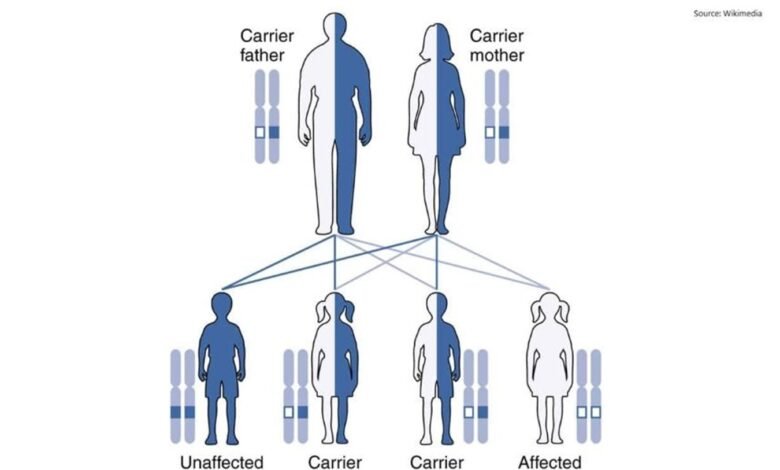Parents’ Attitudes Toward Consanguinity Despite Autosomal Recessive Disease in Children

Consanguineous marriages (cousin marriages), particularly common in Arab and Middle Eastern countries (MENA), are associated with an increased risk of autosomal recessive (AR) genetic disorders.
This study examined the views of parents in Kuwait with at least one child affected by an AR disease (the clinical sample) compared to non-consanguineous parents (the community sample). A total of 285 parents completed a self-administered survey focusing on sociocultural and health attitudes toward consanguinity.
Key Findings
The clinical sample surprisingly exhibited a more favorable sociocultural view of consanguineous marriages despite the well-known associated reproductive and genetic risks.
- Belief in Marital Stability: A majority (51.6%) of the clinical sample agreed that consanguinity decreases divorce rates, and none disagreed. They were also more likely to support consanguinity in general (18.0% vs. 8.4%) and encourage their children to marry a relative (20.3% vs. 12.4%).
- Perception of Prevalence: 87.5% of the clinical respondents reported that consanguinity was common within their own family, compared to only 20.8% of the community sample.
- Discussion Before Marriage: Only 8% of the clinical sample considered it important to discuss consanguinity with their children before marriage, significantly lower than the 72.7% in the community sample.
Regarding health attitudes, significant differences were observed across six of the seven variables examined. Although 81.3%of the clinical sample agreed that consanguinity increases genetic defects, and 75% attributed their child’s health problem to consanguinity (compared to only 9.5% of the community sample), they were paradoxically less likely to consider prenatal testing than the community sample (33.6% versus 72.7%). The only health variable that showed no significant difference was the perception of premarital carrier screening. Nearly all respondents in both groups considered premarital carrier screening as a beneficial practice (96.1% clinical, 94.8% community).
The study also found that consanguineous couples tended to marry at a younger age and had a higher number of children affected by similar genetic conditions and a higher rate of child deaths caused by genetic diseases. The consanguinity rate within a family was associated with parents’ education level.
These findings suggest that sociocultural factors and family ties are prioritized over potential health consequences for future children. Given the continued high prevalence of consanguinity, implementing and promoting national-level premarital carrier screening programs is a critical preventive public health measure.
Reference Source
Al-Kandari, Y., Bahzad, S., Ramadan, D., Alsharhan, H., Hussain, M., & Al-Herz, W. (2025). Attitudes of Parents With a Child With Autosomal Recessive Disease Toward Consanguinity. INQUIRY: The Journal of Health Care Organization, Provision, and Financing, 62, 1–8. doi: 10.1177/00469580251366872







